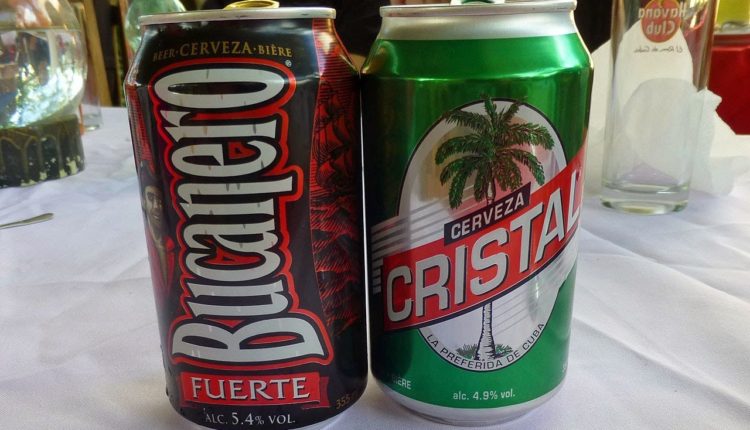
Cuban brands: Wanting what you can’t always have
By Eileen Sosin Martínez
HAVANA – “Take a couple, coffee is hard to find,” suggested the lady, while handing two packages to another customer. It’s the umpteenth time I hear the same statement repeated. And you can substitute the coffee for almost anything else.
Our shortages are like chronic illnesses. They say that what doesn’t kill you strengthens you. But in this case, what doesn’t kill you bothers you — a little every day.
In that eternal complaint of what we don’t have, and therefore take whatever we do have, important nuances are lost. For example: Cuban consumers have tastes, preferences, and in many instances their favorite items are Cuban products. In beer, it is Cristal and Bucanero; the coffee is Cubita, Serrano, Turquino; the canned goods are Conchita, and the mayonnaise is Doña Delicias…
Written in this manner it may not seem like much. However, when you think about it, it gives us a huge advantage. People around the world carry out campaigns promoting goods made in their own countries over those from elsewhere. The packaging of some instant coffee made in Mexico, for instance, reminds customers that with their purchase they are helping local coffee growers.
On the other hand, the tendency to choose one’s own national products — those “Made In” — has been documented in different geographical areas, and is a recurring theme.
Since consumption is one of the engines of the economy, those everyday people who pay the bill are key players.
Consumers are to the market what citizens are to politics. They decide. They drive the economy forward.
(Or should.)
With the imperative to increase exports, the purchasing capacity, and the needs of many countrymen, may be underestimated. Appliances sold in “real” currencies have proven this point.
“Let’s see,” asks the young woman, “if I decided I’d like to pay for other things in dollars, would I be able to do so?” Many have asked — like the old dilemma of the egg and the chicken — why export a product when it is hard to find and in such demand at home.
Havana Club comes to mind as being very clear on this. The rum’s main market are the Cubans themselves. Brascuba, another successful joint venture and maker of cigarettes like Popular, Hollywood and H. Upmann, has in its company profile to dominate the domestic market.
In fact, according to statements by its executives, the plant they established in the Mariel Special Development Zone will allocate only 20 percent of its yield for external sales. The rest stays at home.
 In addition, consumption has an affective side that is no less transcendental. Brands like Taoro, Hatuey or Vita Nuova are stored in people’s sensory memory, their names imply quality, and just by mentioning them you’re bound to start a conversation. We all know Cubans who have emigrated and then vacationed on the Island only to return to their new homes loaded with ‘products of nostalgia.’
In addition, consumption has an affective side that is no less transcendental. Brands like Taoro, Hatuey or Vita Nuova are stored in people’s sensory memory, their names imply quality, and just by mentioning them you’re bound to start a conversation. We all know Cubans who have emigrated and then vacationed on the Island only to return to their new homes loaded with ‘products of nostalgia.’
Under any circumstance, but especially in the context of economic suffocation, it is a tremendous folly not to take advantage of such characteristics. Something similar to when foreign investment is prioritized and the possibilities of the national investor are ignored.
That demand for “Made in Cuba” products would serve to stimulate industry, increase revenues, insert technological improvements… Instead, we get entangled in administrative traps… Take for example the cafeteria on Carlos III Boulevard where recently would only sell one Cristal or Bucanero beer per person. It is the anti-commerce — the consecration of contradiction.
The Cuban consumer cannot be conceived as a second-class customer willing to accept what (little) they offer. Even less when their demand has a great potential for dynamism.
An analysis by the International Labor Organization (OIT 2010), indicates that the financial crisis that began in 2008 showed the need for a more balanced development that maintains the instruments of global integration, but which in turn has tools to promote the domestic market.
They therefore recommend a ‘two-prong strategy’ to promote systemic development of economies based on the expansion of the internal sector and the competitive insertion into the rest of the world.
During the 1990s, the slogan “Mine First” gained renown in Cuba and could be found on the side of soda cans and nylon bags. It had been preceded three decades earlier by the one that stated “Consume Cuban Products.” At this moment we could use some historical coherence for this purpose.
In fact, our functionaries speak of substituting imports, which basically means produce our own.
Let us produce what is sold, according to the basic commercial logic. And let us apply the advertising theorem that tell us that the people are never wrong.

